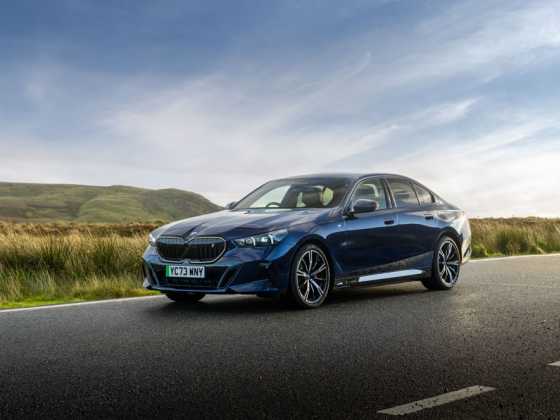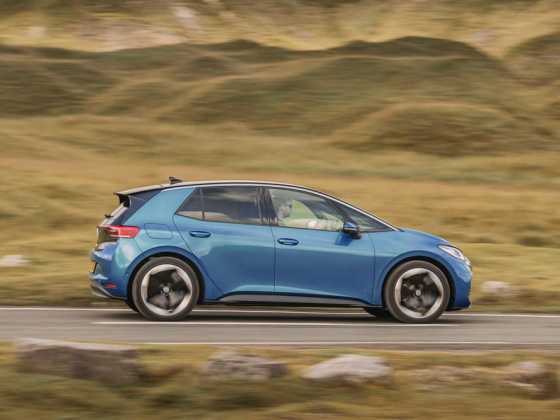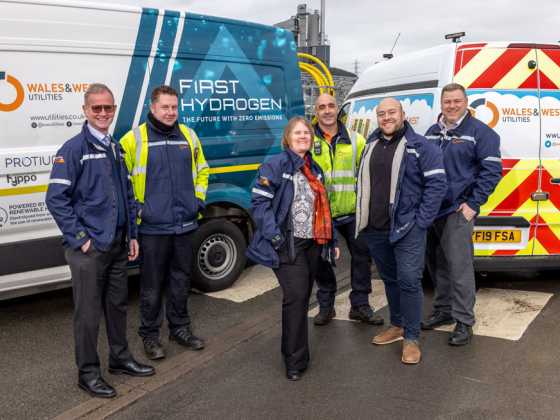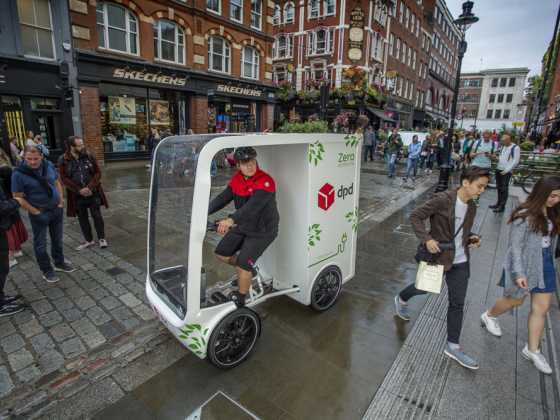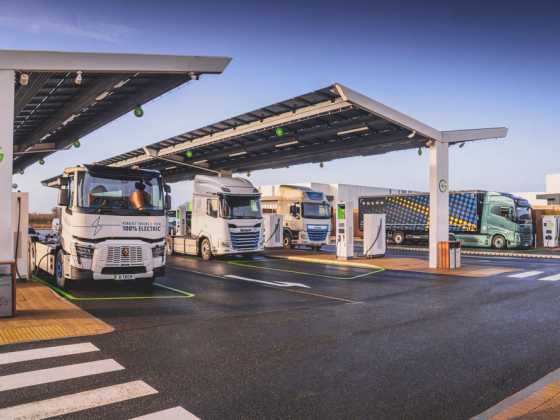SME fleets: the challenges and opportunities

The UK’s fleet industry is facing an exciting period of change, and getting clued up on the issues of the day is vital for SMEs to stay ahead of rising costs and environmental legislative requirements. This, for some businesses, requires a shift in perception and focus, writes Stuart Thomas from the AA
Transport and logistics are key to any firm, but SMEs often place less emphasis on examining any costs they may incur, or future issues which may arise, instead focusing on boosting sales. However, by taking note of, and implementing action towards, the transitions facing the sector, SMEs can increase efficiencies across their businesses, as well as remaining compliant with the latest environmental legislation.
The future of electric vehicles
Alternative fuels are a priority for all fleets, as the government continues its focus on reducing emissions. From the introduction of Clean Air Zones in cities and increased taxes for diesel cars, there is a much greater focus on the environmental impact of vehicles.
Companies looking to reduce costs must plan for a move away from diesel and petrol and add more alternatively fuelled vehicles to their fleets, but awareness of this future change across the industry does not appear to be widespread, as we’ve found when talking to our customers. The best way businesses can avoid picking up any charges and safeguard themselves against forthcoming environmental fees is to implement a long-term fleet strategy, such as a switchover to alternative fuels.
We at the AA also believe that the government has a role to play in this, and
that it should be providing incentives to help businesses achieve this goal, which it has not yet taken a decision to implement. We’re keen to help the fleet industry as it transitions to an alternatively fuelled future.
In both 2016 and 2017, we undertook an industry-leading research project, the Operational Fleet Report, with BT Fleet, with the aim of discovering how the industry is handling the switchover to alternative fuels, in order to help our customers more effectively. We learned that 95 per cent of fleets in general business are currently made up of diesel or petrol-fuelled vehicles. But in just four years’ time, two thirds of fleets expect to run their vehicles on alternative fuels.
A large number of fleets are already looking for guidance and help on how they can work towards this goal. That’s why the AA has already trained all of
its fleets to help its clients prepare for this industry shift. Our patrols have undergone intensive training in dealing with any breakdowns involving electric or hybrid vehicles using a specialised rig at the patrols’ training centre.
We’ve also joined forces with Chargemaster to set up the multi-brand Electric Vehicle, or EV, Centre in Milton Keynes. The centre provides information and advice on electric vehicles, as well as free driving lessons and the opportunity to trial a range of new electric models.
Our partnership with Chargemaster has also seen us launch polar network cards across our patrols in the south-east, which provide a free charge for customers who run out of power on the road. Patrols are able to identify the nearest charge point via the Zap Map app, which enables EV drivers to locate and navigate to charging points across the UK to minimise recovery and tow times, and to get vehicles back on the road as quickly as possible. We’re keen to ensure that all our members are supported on the road, and our partnership with
Chargemaster gives them peace of mind in the event of an emergency.
The clean air debate
There’s no question that the air quality in the UK’s cities, London in particular, leaves much room for improvement. The city has the third worst air quality, after Moscow and Paris, out of Europe’s capitals, according to new research. But the cost to businesses, particularly smaller companies and one-man bands, should not be forgotten in this air quality improvement drive, which will see the introduction of Ultra Low Emission Zones (ULEZ) in London next April. The ULEZ charge will penalise non-compliant cars, vans and motorbikes with a £12.50 daily charge, in addition to the Congestion Charge, and £100 for lorries, buses and coaches, and is in 24-hourly operation. Low emission zones have also been introduced in Brighton, Norwich, Nottingham and Oxford, with Birmingham, Leeds, Derby and Southampton all looking to follow suit by charging polluting vehicles.
For many SMEs, the price of upgrading to an electric vehicle (EV) fleet to avoid the £12.50 daily charge per vehicle, may hold too hefty a price tag for their business to swallow, although it’s clear this is a future goal firms should be working to achieve. The AA believes there is too much stick and not enough carrot in the mayor’s plans to increase emissions standards for London’s vehicles, and is urging him to introduce a scrappage scheme for polluting vehicles to stop London’s small businesses grinding to a halt next April, when ULEZ takes effect.
Connected data
Because of company size and budgetary restrictions, it is a rare occurrence for an SME to employ a dedicated fleet manager. As a rule, the business owner/operator generally incorporates this role into their busy schedule, and thus, due to an extensive workload may not be aware of the areas where they should be looking to introduce efficiencies to streamline transport costs across their business.
Connectivity is an area which is revolutionising the UK’s fleet sector and has already achieved widespread adoption in terms of first generation connected car technology. It’s a very broad term which covers extensive monitoring capabilities.
Journey planning and mileage capture are two of the most common, but elements such as geo-fencing and servicing integration can provide added value to business owners who use them effectively. Businesses which use connected car technology often report significant savings in areas such as fuel and insurance, while others praise the positive reduction in risk and improved driving techniques.
Going forward, connected car technology will become even more crucial to businesses which are looking to achieve more control of their vehicles. Owners are increasingly keen to employ the prognostic capability of connectivity to predict when vehicles may need servicing and schedule preventative maintenance, as well as calculate where spending can be reduced across mileage.
With increasing incidences of shared mobility and the roll-out of autonomous add-ons in modern fleet vehicles, businesses will also need to support multiple drivers.
The AA provides a number of mobility solutions to the SME sector and we’reaware that utilising vehicle management services can allow small businesses to maximise impact by focusing investment on other key areas, allowing more scope for growth. The AA’s connected car technology provision for fleet and SME incudes route planning capability which allows drivers to minimise time spend on managing their vehicles.
A tool for compliance
The use of data as a tool for compliance management with environmental legislation is another trend we are seeing emerge across the industry, particularly with the introduction of ULEZ. Rigorous planning is essential for SMEs in particular, which will be the hardest hit by the new charges, to ensure the right vehicle goes to the right job, with the correct equipment and can travel compliantly through a range of locations to avoid fines and penalties. The geo-fencing and journey planning elements of connected car technology could prove invaluable to businesses in managing this difficult issue.
As the largest business provider in breakdown cover and specialist in fleet and SME, the AA is able to offer a specialised provision to companies operating across the UK’s small business sector, which will play a key role in the UK’s forecasted growth going forward.

